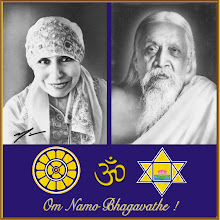நமது சிந்தனைக்கு:
மனித வாழ்வில், நம்முடைய எண்ணங்கள் தான் நம்மை ஆளுகின்றன. "நினைப்புதான் பிழைப்பக் கெடுக்கின்றது" என்று சாதரணமாக கூறப்படும் ஒரு கருத்து, மிகவும் ஆழ்ந்து பார்க்க வேண்டிய ஒன்று ஆகும். எண்ணங்கள் Positive - ஆக இருக்கும் பட்சத்தில், நம்முடைய வாழ்விலும் நம்முடைய நல்ல செயல்களாக அவை பிரதிபலிக்கப்படுகின்றன. அதுவே Negative - ஆக இருந்தால் நம்மையும் பாதித்து, பிறரையும் பாதிப்படையச் செய்கின்றன. நம்முடன் இருக்கும் குணமும், அத்தகைய எண்ணங்களுடன் சேர்ந்து நமது Character - ஐ நிர்ணயம் செய்கின்றன.
இந்த எண்ணங்கள் எல்லாமே நாம் சந்திக்கின்ற நபர்கள், புறச் செயல்கள், பார்க்கும் நிகழ்ச்சிகள், கேட்கும் விஷயங்கள், நம்மை மிகவும் பாதிக்கும் நிகழ்வுகள் என பலவகையான வெளியுலகம் சார்ந்த நிகழ்வுகளின் தாக்கங்களினால் மட்டுமே நம் மனதில் தோன்றுகின்றன. சிலருடன் பேசினால் நமக்கு புது உற்சாகம் எழுவதை காணலாம். மனதில் ஆக்கபூர்வமான எண்ணங்கள் எழுவதைக் காணலாம். இது அந்த மனிதர்களுடைய தாக்கத்தினால் வரக்கூடிய நல்ல எண்ணங்களின் வெளிப்பாடு.
இத்தகைய வெளியுலக நிகழ்வுகளின் தாக்கம், ஒவ்வொரு மனிதனுக்கும் வேறுபடுகிறது. உதாரணமாக News சேனல்களை விருப்பிப் பார்ப்பவர் அநேகம் பேர். அதில் நல்ல செய்திகளும் வரும், கெட்ட செய்திகளும் வரும். ஏதேனும் ஒரு துக்ககரமான செய்தியை பார்பவர்களில், எத்தனை பேர் அதனை வெறும் ஒரு செய்தியாக மட்டுமே பார்ப்பார்கள் என்பது அவரவர் மனநிலையை பொறுத்தது. சிலருக்கு அவை வெறும் செய்தி. ஆனால், உணர்ச்சி மிகுந்த அல்லது பலவீனமான மன நிலையை கொண்டவர்களால் அதனை எளிதில் மறக்க முடியாது. அந்த எண்ணம் சுழன்று சுழன்று மனதில் வரும். அவர்கள் செய்யும் செயலைக் கூட அந்த எண்ணம் பாதிக்கிறது. சிரத்தை குறைகிறது.
ஆகையால் புறத்தாக்கங்கள் நம்மை பாதிக்காமல் தடுக்க, இத்தகைய நிகழ்ச்சிகளை பார்க்காமல் தவிர்க்கலாம். தவிர்க்க முடியாவிட்டால், நாம் அந்த இடத்தை விட்டு அகன்று செல்லலாம். அது எல்லா இடங்களிலும் சாத்தியமா? இல்லை. அப்போது என்ன செய்யலாம்? இது போன்ற விஷயங்களை நாம் மீண்டும் மீண்டும் நினைப்பது, நமது செயல்களுக்குத் தடை என்ற பகுத்தறிவை நாம் பெறுவதன் மூலமும், மனப் பயிற்சியின் மூலமும், நம் மனதில் தேவையில்லாத எண்ணங்கள் ஏற்படாதவாறு தடுக்கலாம்.
அன்னை அது பற்றிக் கூறும் போது, முதலில் நமக்கு தோன்றும் எண்ணங்களை பரிசீலித்துப் பார்க்க வேண்டும் என்கிறார். அவை எதனால் தோன்றியது, ஏன் தோன்றியது, அது நல்லதா, கெட்டதா, நமது தாழ்ந்த குணம்தான் அது தோன்ற காரணமா என்று ஆராய்ந்து அவற்றை விலக்க நாம் முற்பட வேண்டும்.
நமது மொத்த வாழ்வையும் நிர்ணயம் செய்யும், நம் மனதின் எண்ணங்களை அடக்கி ஆள்வது என்பது மிக முக்கியமான ஒன்று. அன்னையிடம் இது பற்றிக் கேட்கப்பட்ட கேள்விக்கு அவர் கூறும் பதிலை கீழே காணலாம்.
How can one become master of one’s thought?
Mother's Answer:
First condition. To understand the full importance of this mastery by becoming aware, through observation, that our actions are the exact expression of our thoughts and that so long as we do not have perfect control over our mental activity, these thoughts are nothing but reflexes coming from every outside influence (sensations and suggestions). Thus we do not possess ourselves and can in no way be responsible for ourselves so long as we are not the masters of our thought.
Second condition. To will persistently an effective direction of our mental activity.
Third condition.To observe our thoughts in order to become familiar with them, to know their habitual course and become aware of the ones which have a special affinity with our sensorial and emotional nature.
Fourth condition. To seek in ourselves the idea which seems to be the highest, the noblest, the purest and most disinterested and, until the day we find a more beautiful idea to replace it, to make it the pivot around which our mental synthesis will be built up, the regulating idea in whose light all other thoughts can be seen and judged, that is, accepted or rejected.
Fifth condition. To undergo a regular daily mental discipline. To discover among all the teachings that have been given on this subject the method that seems to be most effective and to follow it scrupulously, rigorously, with energy and perseverance.
- From "Words of Long ago"

No comments:
Post a Comment